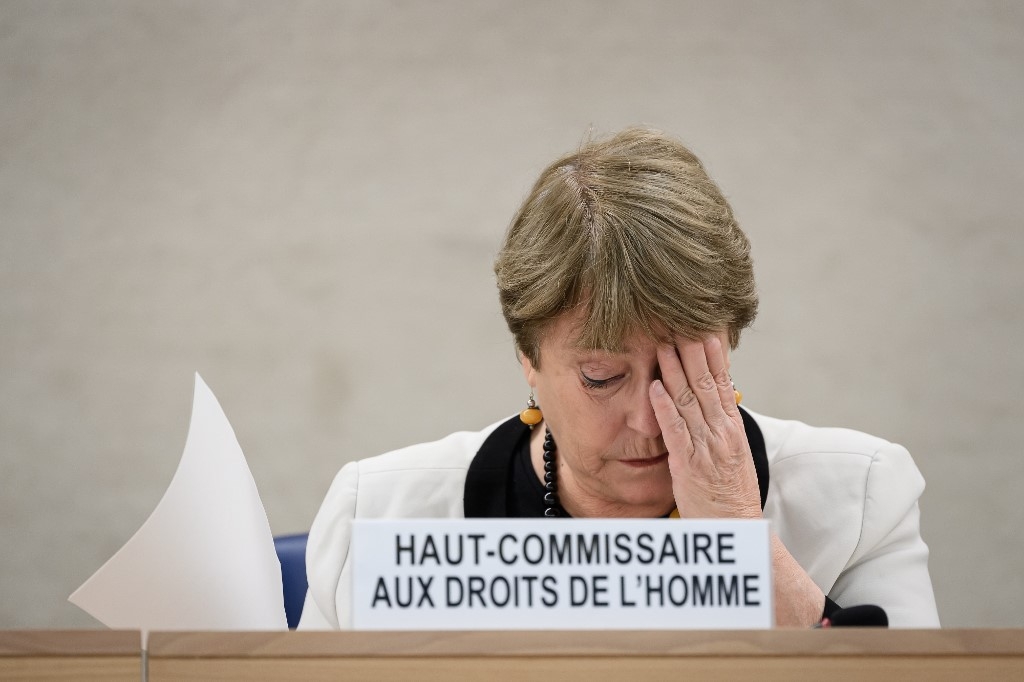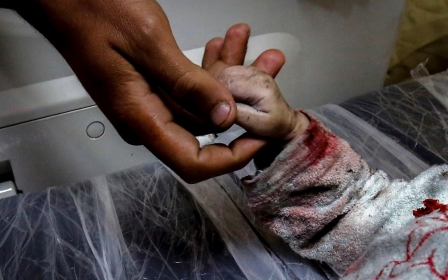Rights group demands UN reveal companies involved in Israel settlement activities

A Palestinian rights group has called on the UN to release a database that lists every business that operates in, or works with Israeli settlements in the occupied West Bank.
Al-Haq, a Ramallah-based human rights group, released a statement on Tuesday calling on the Office of the High Commissioner for Human Rights (OHCHR) to release the database, which was created in 2016 but never published.
New MEE newsletter: Jerusalem Dispatch
Sign up to get the latest insights and analysis on Israel-Palestine, alongside Turkey Unpacked and other MEE newsletters
The database, which Israel has called a blacklist, was created after the UN Human Rights Council (HRC) voted on resolution 31/36, which passed without opposition.
The resolution mandated that the OHCHR create a list of businesses that directly and indirectly helped or profited from Israeli settlement construction and growth in occupied Palestinian territory. The list was set to be updated annually.
While the resolution specified that the data was to be given to the HRC at its 34th session in March 2017, it was never sent.
Israel's settlements are illegal under international law, violating Article 49 of the Fourth Geneva Convention, among other international agreements and UN resolutions.
Specifically, Article 49 prohibits an occupying body from allowing the transfer of its own civilian population into the territory it occupies.
In March 2019, High Commissioner Michelle Bachelet pledged to fulfill the mandate "within coming months", but did not do so.
"Given the novelty of the mandate and its legal, methodological and factual complexity, further consideration is necessary to fully respond to the council's request," Bachelet said at the time.
"The repeated, open-ended and unexplained delays in releasing the UN database make us question whether the High Commissioner will fulfill her mandate at all," al-Haq said in a statement on Tuesday.
If Bachelet is unable to release the database, "then an explanation must be provided", al-Haq said.
"At this point, the release of the UN database has become a matter of ensuring the impartiality and credibility of the High Commissioner, the OHCHR, and the HRC," the group continued.
Bachelet's office did not respond to Middle East Eye's request for comment by the time of publication.
'Degree of transparency'
Al-Haq said it has repeatedly appealed to lawmakers and foreign affairs ministries across the world to help pressure the commissioner into releasing the list.
Last year more than 100 human rights groups sent a letter to the High Commissioner urging her to release the findings.
"The database will bring an important degree of transparency on the activities of businesses which contravene rules and principles of international humanitarian and human rights law as a result of their operations in or with illegal Israeli settlements," said the groups, which included Amnesty International, Human Rights Watch (HRW) and Oxfam, among others.
In September, HRW said the prolonged delay of the database's release was "without precedent".
At the time, HRW said releasing the database "would highlight the Council's firm rejection of the Israeli government’s efforts to expand and entrench its illegal settlement enterprise and business activities, which fuel rights abuses".
Israel has pushed against the release of the list, with its foreign ministry issuing a statement last year challenging the UN's authority to compile such a database.
The ministry said the HRC agreed to mandate the database out of "political and anti-Israeli bias".
The US had also pressured against the list's publication, threatening to leave the council if it did so. In 2018 Washington withdrew from the human rights council, in part over what is said was "anti-Israel" bias at the council.
Middle East Eye delivers independent and unrivalled coverage and analysis of the Middle East, North Africa and beyond. To learn more about republishing this content and the associated fees, please fill out this form. More about MEE can be found here.





